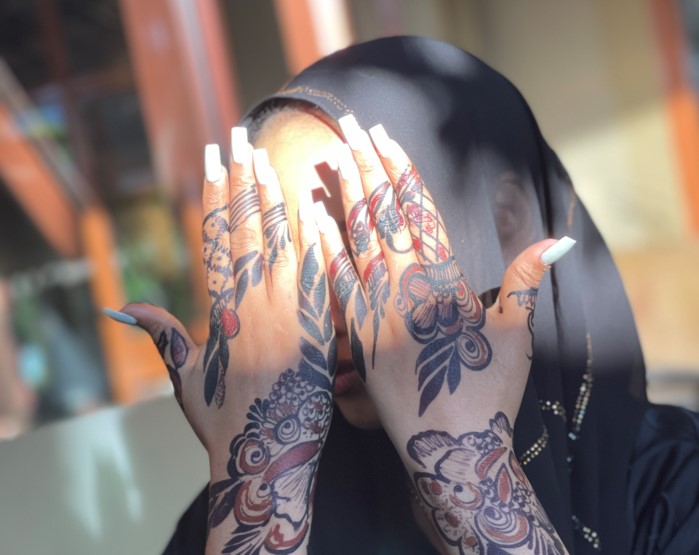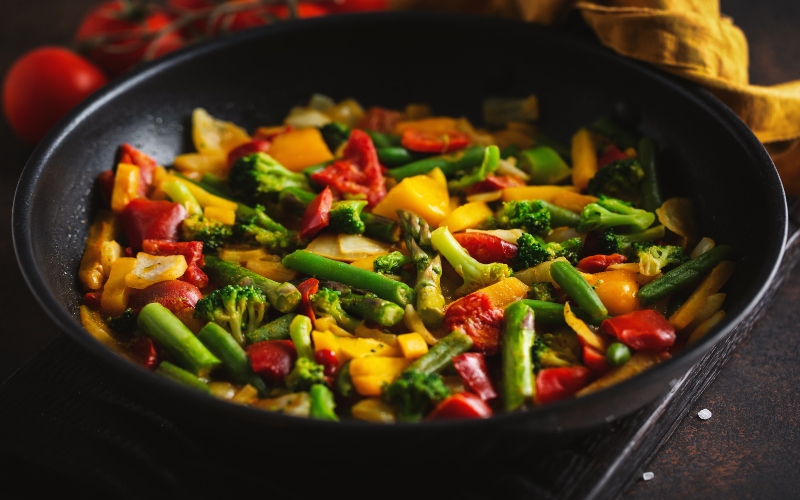Eastleigh’s henna artists blending traditional and modern fashion

Henna is applied in all seasons, with a peak during festive occasions like Eid. It is also popular on weekends when numerous weddings are held, while some women apply henna simply to enhance their everyday beauty.
Henna art has epitomised cultural richness and feminine elegance for decades, deeply ingrained in the Somali and Swahili traditions. It adorns women and young girls during weddings and other celebrations, symbolising beauty and cultural pride.
For married women, henna becomes more than an adornment; it is a cherished symbol, enhancing their allure and beauty in the eyes of their husbands.
More To Read
- Ultimate guide to selecting the perfect scented candle for your home
- SMEs warn soaring prices of raw materials, costly licences threaten survival
- Vibrant atmosphere as Eastleigh comes alive as Ramadan draws to a close
- Boom for Mombasa beauty artists as they blend tradition and modern style
- Henna art turns struggle into triumph for Mombasa’s young entrepreneur
- Exploring new horizons: What upcountry visitors say about shopping at Eastleigh
While henna remains a standard of beauty for many, others have discovered its entrepreneurial potential, transforming it into a thriving business.
Fartun Abdi, a 23-year-old entrepreneur in Nairobi’s Eastleigh, discovered her passion for henna and makeup artistry in 2020.
"I realised I was passionate about henna and makeup and decided to take it seriously. The training helped me refine my skills and gave me the confidence to open a beauty shop,” said Fartun.
Together with her cousin, they opened California Beauty Salon in Eastleigh, which quickly attracted a diverse clientele, with at least 50 people visiting it daily.
The decision to open California Beauty Salon was personal for Fartun, driven by her desire to empower others, and coupled with the challenge of earning a meagre pay from her previous employment.
"Having worked for someone and earning very little from my talent, I wanted to create a space where I could mentor young women and help them become independent,” said Fartun.
In her salon, Fartun offers top-notch beauty services and mentors aspiring artists. Currently, she oversees the training of about 10 girls in henna art, makeup application and hairstyling, highlighting skill development and empowerment.
Fartun prides herself in offering a comprehensive range of services, including traditional henna application, pedicures, and manicures.
"We've embraced modern henna techniques like piko, which our clients love for its vibrant colours and long-lasting effect."
The salon has become popular with trendy and unique designs, especially among younger clients who seek out intricate floral patterns that evolve with contemporary fashion trends.
In contrast, older women often opt for traditional red henna, preferring elaborate designs on their legs, back, and chest, to enhance their appeal to their husbands.
“Married women often prefer to adorn areas beyond their hands and ankles, such as their backs and chests, to enhance their allure for their husbands. In contrast, young ladies favour unique designs on their hands and ankles,” said Fartun.
All seasons
Henna, she said, is applied in all seasons, with a peak during festive occasions like Eid. It is also popular on weekends when numerous weddings are held, while some women apply henna simply to enhance their everyday beauty.
“From our observations, married women tend to favour red henna, while younger ones often prefer black henna, using it both for artistic designs and nail adornment,” she said.
 An assortment of traditional and modern henna. (Photo: Hafsa Hassan)
An assortment of traditional and modern henna. (Photo: Hafsa Hassan)
Fartun's business has experienced a significant boom, especially after leveraging social media platforms for marketing. Her future aspirations include expanding her business, attracting a broader customer base, and continuing to inspire young women.
Marketing plays a pivotal role in California Beauty Salon's success, with platforms like TikTok serving as a primary outreach tool.
"We've found TikTok to be incredibly effective in reaching our community. It allows us to showcase our work and connect with clients in a way that feels personal," she adds.
Through engaging posts and client testimonials, Fartun and her team effectively connect with their target audience, predominantly consisting of members of the Somali community. This targeted approach not only expands their clientele but also strengthens community ties, positioning the salon as a cultural and social hub in Eastleigh.
"I want to expand our services and continue mentoring young women," Fartun said.
By nurturing talent and embracing innovation in beauty practices, Fartun continues to redefine standards of beauty and empowerment within her community.
The significance of henna extends beyond aesthetics for some clients, particularly those who hold onto Somali traditions.
"In our communities, henna sessions are a time for women to connect, share stories, and celebrate traditions," said Hodhan Abdulahi, a henna enthusiast.
The practicality of traditional henna, which dries quickly and is easy to apply and remove, makes it suitable for their daily lives.
“We can apply it while working and carry on without needing to sit for hours waiting for it to dry,” said Hodhan.
Halima Adan, a 21-year-old henna fanatic, said she appreciates the artistry and innovation behind contemporary designs, contrasting them favourably with the perceived limitations of traditional henna.
"Modern henna artists are like designers. They bring creativity and unique flair to their craft, offering us personalised and stylish beauty solutions,” said Halima.
In Eastleigh, traditional henna, known locally as dawa, is a popular street commodity. It is sold in small, individually wrapped portions and comes in various colours, including red, brown, and black. Some women value traditional henna for its authenticity and cultural significance, unlike commercial alternatives.
Apart from its aesthetic appeal, henna holds significant cultural importance in Somali culture.
Many Somalis prefer henna because they can pray while wearing it, unlike beauty products such as nail polish or other items that are not suitable for prayers. This adherence to tradition highlights henna's dual role both as a cultural adornment and a practical choice for religious observance.
Top Stories Today
















































